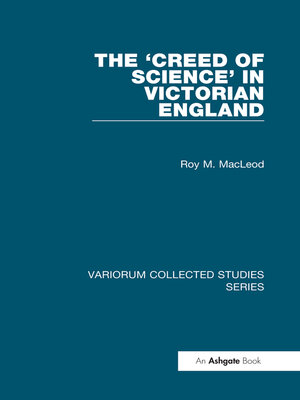
Sign up to save your library
With an OverDrive account, you can save your favorite libraries for at-a-glance information about availability. Find out more about OverDrive accounts.
Find this title in Libby, the library reading app by OverDrive.



Search for a digital library with this title
Title found at these libraries:
| Library Name | Distance |
|---|---|
| Loading... |
The nineteenth century, which saw the triumph of the idea of progress and improvement, saw also the triumph of science as a political and cultural force. In England, as science and its methods claimed privilege and space, its language acquired the vocabulary of religion. The new 'creed' of science embraced what John Tyndall called the 'scientific movement'; it was, in the language of T.H. Huxley, a militant creed. The 'march' of invention, the discoveries of chemistry, and the wonders of steam and electricity culminated in a crusade against ignorance and unbelief. It was a creed that looked to its own apostolic succession from Copernicus, Galileo and the martyrs of the 'scientific revolution'. Yet, it was a creed whose doctrines were divisive, and whose convictions resisted. Alongside arguments for materialism, utility, positivism, and evolutionary naturalism, persisted reservations about the nature of man, the role of ethics, and the limits of scientific method. These essays discuss leading strategists in the scientific movement of late-Victorian England. At the same time, they show how 'science established' served not only the scientific community, but also the interests of imperial and colonial powers.







